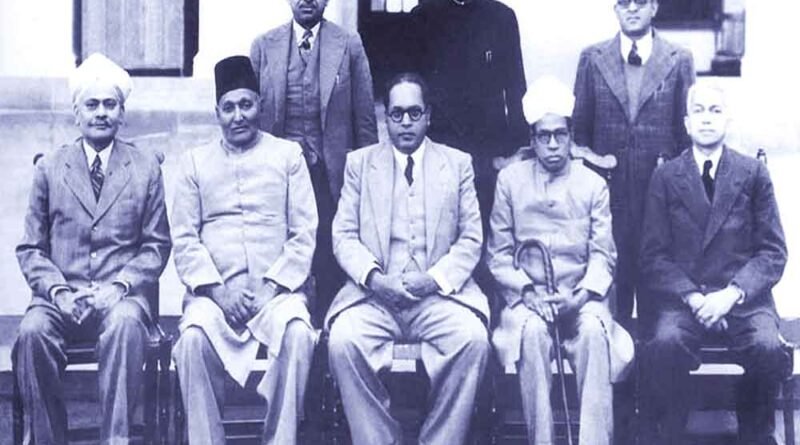True trustees of the Constitution?
Our forefathers, who drafted the Constitution, had pictured an entirely different scenario for the development of the nation than what it has now become
The unseating of the then Union Government by the people in May 2014 shocked those who were convinced of being the only conscience keepers to the nation, the protectors of the Constitution of India. Come September 2015, certain authors, poets and film personalities gave expression to their hurt conscience on what they thought were increasing intolerance and “unmaking of India”. Recently, another letter written by 108 bureaucrats to the PM received only stunted media response; that too, from ideologically inclined fellow travellers. Selective efforts, people understand, are mere manifestation of the loss of hegemony over institutions and regular sources of support from the corridors of power. India deserves far more unbiased and credible civil society think tanks. Is it not intriguing that those worried about the ‘victimisation of a particular community, intolerance and attack on secular fabric’ just prefer to keep mum when orchestrated violence takes place in West Bengal before and after Assembly elections. Their conscience is not aroused when two ministers of the Maharashtra Government are put behind bars, but refuse to resign! The 108 custodians of the Constitution just did not remember TT Krishnamachari, Keshav Deva Malaviya or Lal Bahadur Shastri! Does it not indict the bureaucracy as a whole when the house of a senior IAS officer is raided and over `17 crore in cash is recovered? When orders of the Supreme Court of India on loudspeaker decibel levels are flouted for years and insistence on it being implemented is resisted? The unscrupulous come in the support of the deviant! Does the highest Indian judiciary deserve this treatment?
In Maharashtra and Rajasthan, the State Governments are openly encouraging the flouting of court orders on decibel levels; these two Governments are also the custodians of the spirit of Constitution. Why can’t the ‘hurt and worried’ luminaries issue an appeal to respect the judiciary?
As one peruses the Constituent Assembly debates, one is inspired by the spirit and intent that remains organically present during these deliberations, conducted with Rajendra Prasad as its president. The chairman of the Drafting Committee, BR Ambedkar, was admired for his comprehension of the socio-economic and cultural context of India. He had thorough comprehension of the global scenario and had acquired a great futuristic vision. He made a historic speech on November 26, 1949, when the draft was finally approved by the Constituent Assembly: “Whatever the Constitution may or may not provide, the welfare of the country will depend upon the way in which the country is administered. That will depend upon the men who administer it. It is a trite saying that a country can have only the Government it deserves.”
Those with a hurt conscience must have read it all when they entered the corridors of power to implement the provisions of the Constitution, and preserve and protect its spirit. Did they realise that it was imperative on the part of the implementers, including the elected representatives, bureaucrats and legal luminaries to remember Ambedkar’s expectations: “I shall only hope that all those whose good fortune it may be to work this Constitution in future will remember that it was a unique victory which we achieved by the unique method taught to us by the Father of the Nation, and it is up to us to preserve and protect the independence that we have won and to make it really bear fruit for the man in the street. Let us launch on this new enterprise of running our Independent Republic with confidence, with truth and non-violence and, above all, with the heart within and God overhead.”
On November 25, 1949, senior Congress leader Mahavir Tyagi was given four minutes to speak, which he considered “the most precious of my life, past, present and future”. The Draft Constitution was a ‘concrete picture’ before them, in which each of the members had contributed; and Ambedkar was the chief artist. It would be very relevant to every politician — and also high-perk-privilege-drawing bureaucrats to ponder over what this courageous leader — a member of the AICC for 39 years and arrested by the British 11 times, expressed as his serious apprehension: “Although I have every respect and praise for this Constitution, yet there is one thing which I am most afraid of; and it is that this Constitution is tendenalous to create a class a class that democracy has created everywhere of professional politicians.”
He had great apprehensions on politics becoming a profession, with allurements of power, perks and privileges. This apprehension has really come true. Mahavir Tyagi, as many others, wanted professionals to come to politics, with all of their expertise, to strengthen the system, but earn their livelihood from their own vocation. Today, exceptions apart, it is inheritance and allurements of power, perks and privileges. This is the current comprehension of the spirit of Ambedkar’s Constitution.
But for Mahavir Tyagi and his ilk, it was different: “Only one thing will make this Constitution attractive. If the whole of this Constitution were provided with one supreme provision or safeguard, then I think the whole thing will be all right. It is this: If we could add a proviso to it as follows: ‘Notwithstanding anything contained in this Constitution, no citizen of India shall draw for his personal use either from the public exchequer or from private enterprise a pay, profit or allowance which exceeds the earnings of an average wage earner’.” Could there be any takers among the elected representatives in this third decade of the 21st century?
(The author works in education, social cohesion and religious amity. The views expressed are personal.)
Source: The Pioneer




